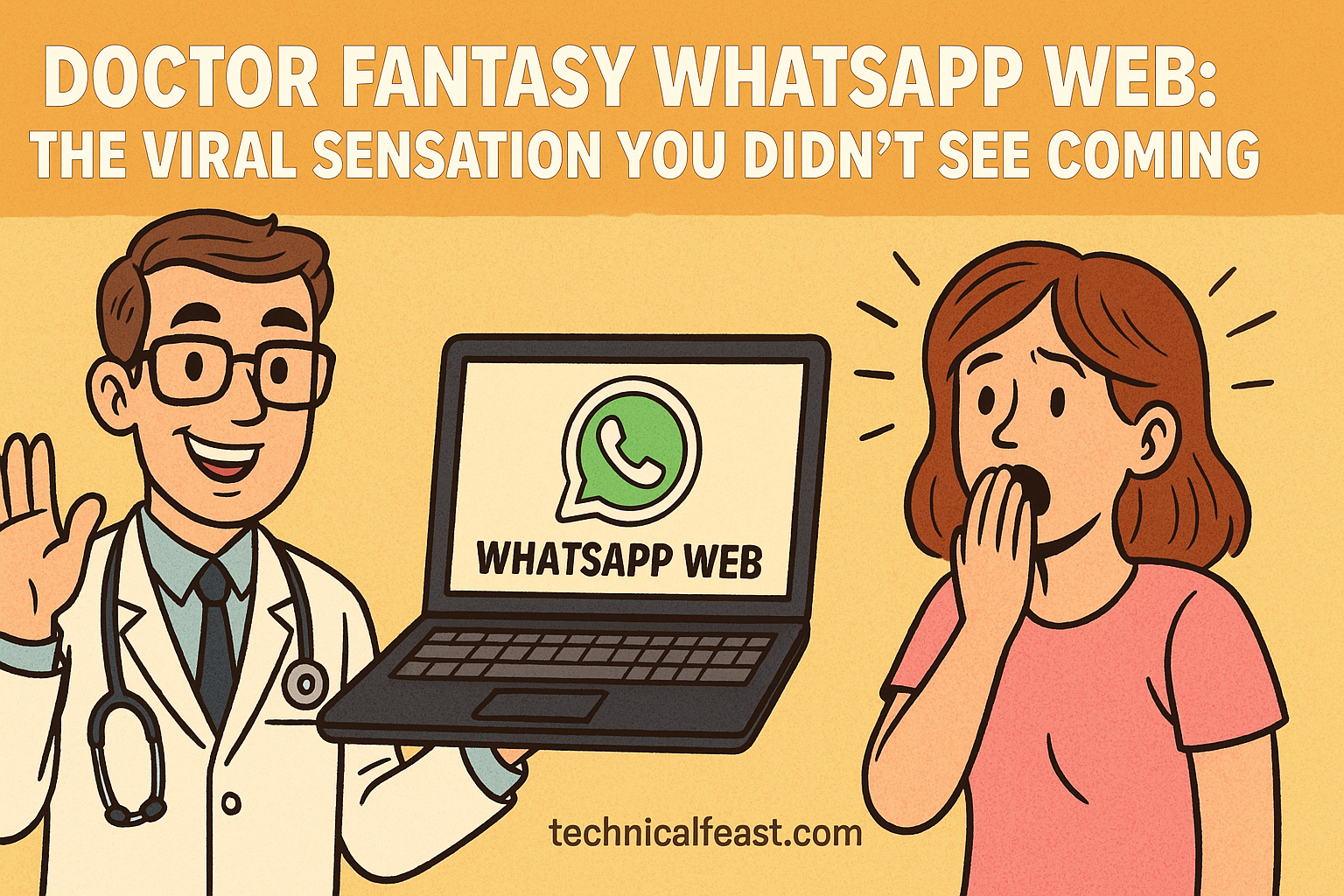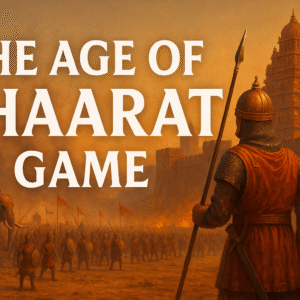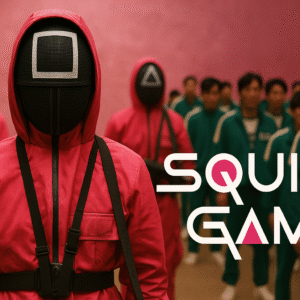Table of Contents
A Modern Twist on Escapism
In a world constantly craving digital dopamine, the rise of Doctor Fantasy WhatsApp Web has taken a surprisingly dramatic leap. What started as a niche curiosity has turned into a cultural sensation—especially among teens and young adults seeking both entertainment and escapism. But what is it really? A roleplay experience? A WhatsApp-based storytelling simulation? A bizarre blend of fantasy, drama, and digital chat format?
The answer is—yes, all of it.
This article explores the fascinating journey and psychology behind doctor fantasy WhatsApp web, how it became a trend, and why people across demographics are glued to this unconventional, pseudo-medical fantasy.
What Exactly is Doctor Fantasy WhatsApp Web?
To put it simply, doctor fantasy WhatsApp web is a simulation or scripted interactive chat where the user becomes part of a storyline—usually involving medical scenarios, emotional drama, and exaggerated role-play, all happening inside a WhatsApp chat window.
Imagine receiving texts like:
- “Nurse! We’re losing him, push 10 cc adrenaline!”
- “Doctor, there’s a complication in the operation!”
- “You’re the only one who can save him…”
Except these messages aren’t real. They’re part of a fantasy simulation, often powered by pre-designed scripts or roleplay bots, embedded in either a WhatsApp group or web interface. It’s like living inside a soap opera, except it’s all text and your imagination does the rest.
It might sound absurd at first, but to many, doctor fantasy WhatsApp web is a fun, emotional outlet. Especially in regions where traditional entertainment is limited or where youth crave something new, this trend has given them an experience that’s both immersive and bizarrely addictive.
The Origins of the Trend — Case Study from Northeast India
Let’s rewind.
The first recorded boom of doctor fantasy WhatsApp web content came from regional Facebook meme pages and YouTube Shorts from Assam and neighboring states. The videos showed funny clips of people pretending to be in a hospital emergency using WhatsApp texts. At first, it was purely satirical—people mocking how dramatic soap operas exaggerate everything.
But satire turned into subculture.
One user, Rakesh (16, student from Guwahati), shared his story:
“At first, I was just watching those memes. Then I joined a roleplay group. Within days, I was addicted. I played as a junior doctor, a nurse, even a patient in a coma once. It was weirdly fun.”
This transition from meme to experience is what fueled the virality of doctor fantasy WhatsApp web. Now, it’s not just Northeast India—groups have emerged across the country and even globally, in regions like the Philippines, Nigeria, and Brazil.
Why Is It So Addictive?

Now, let’s get a bit deeper. Why are people so hooked?
The answer lies in three psychological triggers:
- Identity Exploration
People get to become something they’re not—doctor, nurse, patient, or even villain. No rules. No consequences. - Emotional Drama Without Real-Life Risk
The stakes feel real, but they’re not. You can “save a life” or “lose a patient” and still log off with no actual damage. - Community and Belonging
These groups often operate like mini-families. They have roles, status (like “Head Doctor”), and even in-group jokes and memes.
And all of this happens on a platform people already use every day—WhatsApp. When these simulations are brought into the doctor fantasy WhatsApp web, it just enhances the engagement because of the familiar interface.
Real Conversations, Unreal Situations
Here’s a real transcript (anonymized) from a public doctor fantasy WhatsApp web session:
Dr. Ayaan: Nurse! What’s the BP?
Nurse Priya: 80/40 sir… we’re losing him!
Dr. Ayaan: Prepare for defib. 200 joules. CLEAR!
(5 seconds later)
Patient: *coughs* Wha… where am I?
Nurse Priya: He’s ALIVE!
Now, medically speaking, most of this is laughably incorrect. But that’s not the point. The users aren’t aiming for realism. They’re craving drama.
That’s where doctor fantasy WhatsApp web hits a sweet spot—it blends exaggerated storytelling with the excitement of live chat. For some, it’s better than TV.
Is It Safe or Concerning?
When anything goes viral, it’s important to ask: is this good for people?
Psychologists argue both sides.
Pros:
- Helps people explore creativity.
- Boosts reading and writing skills.
- Offers emotional catharsis.
- Builds digital social skills.
Cons:
- Can lead to excessive screen time.
- May blur reality for younger users.
- Risk of inappropriate or uncontrolled chats.
Platforms like WhatsApp don’t officially monitor these simulations. So while many doctor fantasy WhatsApp web groups are just harmless fun, others might slide into unhealthy content, especially without moderation.
That’s why awareness and digital literacy are essential, especially for younger users.
From Roleplay to Revenue?
Believe it or not, some creators are now monetizing the trend.
- Instagram reels creators are posting dramatized versions of these chats.
- Telegram channels are offering “premium roleplay scripts.”
- Some even charge money to enter exclusive doctor fantasy WhatsApp web groups.
It’s the digital economy in action. Where attention flows, money follows.
One content creator told us anonymously:
“I started a fantasy RP group as a joke. Within a week, people were DMing me to join. I made a Google Form and added an entry fee. It’s my side hustle now.”
So yes, the fantasy is now becoming a small business for many—especially in countries with high youth unemployment and growing mobile usage.
What Do Parents and Schools Think?
With the rise of doctor fantasy WhatsApp web, it’s no surprise that educational institutions and parents have started paying attention—and in some cases, raising alarms.
Some schools have already sent circulars urging parents to monitor their children’s WhatsApp usage. One school principal in Kolkata shared:
“We noticed some students staying up past midnight, chatting in strange groups. Upon further checking, we found out it was related to some fantasy hospital roleplay. It may seem innocent, but it’s distracting from studies.”
Similarly, many parents are caught off-guard. The term “doctor fantasy WhatsApp web” sounds too technical or even harmless to the untrained ear. But upon exploring what actually goes on inside these chats, some are left both amused and confused.
Not all reactions are negative, though. Some parents feel that as long as the groups are moderated and safe, this fantasy chat format is a better alternative to violent games or aimless scrolling.
The takeaway here? Like all internet trends, doctor fantasy WhatsApp web has both potential and pitfalls, and awareness is the key to keeping it healthy.
How It Compares to Other Roleplay Trends
Let’s be real—doctor fantasy WhatsApp web isn’t the first time people have turned texting platforms into fantasy playgrounds. But it has carved out a unique niche compared to other digital roleplay phenomena.
Let’s break it down:
| Trend | Platform | Style | Popular With |
| Doctor Fantasy WhatsApp Web | WhatsApp Web | Dramatic, hospital-b ased, emotional | Teens/Young Adults |
| K-Drama Al Chat Simulatio ns | Al Chat Apps | Romantic, scripted, cinematic | K-pop fans |
| Al Girlfriend/Boyfriend Bots | Telegram, Apps | Emotional & flirty conversations | Lonely users |
| Discord RP Servers | Discord | Fantasy/Sci-fi/Anime themed | Global gamers |
The unique appeal of doctor fantasy WhatsApp web is its everyday realism. It’s not about magic, anime, or superheroes. It’s about pretending to be someone that feels plausible—a doctor, nurse, or even hospital visitor.
Also, the WhatsApp interface plays a big role. It’s familiar, easy to use, and feels authentic. That adds a layer of immersion not found in fancy apps.
The Fantasy Gets Deeper—New Variants Are Emerging
Here’s something wild: doctor fantasy WhatsApp web has started evolving into sub-genres.
Some of the most popular spin-offs include:
- Zombie Hospital RP – Doctors fighting a virus outbreak.
- Romantic Patient RP – Where love stories unfold between doctor and patient.
- Murder Mystery Hospital – Someone gets “killed” in the ward, and players solve the crime.
- Emergency Simulation Drill – A timed race to “save lives” under pressure.
Each version adds more layers to the fantasy, making it feel like an ongoing series rather than just a one-time game. In fact, some groups even have seasons, like TV shows, with cliffhangers and returning characters.
And yes, all of it still happens inside WhatsApp chat windows.
The Future of Doctor Fantasy WhatsApp Web
Is this a passing internet phase? Or is doctor fantasy WhatsApp web here to stay?
Let’s look at the signs:
- The format is simple and requires no extra apps.
- It taps into both humor and emotion—great for virality.
- It adapts easily—new scenarios, new roles, new scripts.
Experts believe that the real future of this trend lies in gamification and AI integration. Imagine AI characters that reply like real doctors, create medical plot twists, and escalate drama based on your decisions—all within WhatsApp.
Some platforms are even exploring interactive WhatsApp-based mini-games that mimic the doctor fantasy WhatsApp web experience but in a safer, guided format.
So, this might not just be a trend—it might be the blueprint for future micro-entertainment.
Expert Opinion on the Trend
To gain more insight into doctor fantasy WhatsApp web, we reached out to digital culture researcher Dr. Preeti Mehra, who studies youth behavior in virtual communities.
“What we’re seeing here is the beginning of a new storytelling format. People don’t just want to watch content anymore—they want to live it. And with chat-based formats, they’re writing the story as it unfolds.”
She further noted how such experiences give users a feeling of control and connection—two things increasingly hard to find in today’s hyper-distracted world.
Dr. Mehra also warned, though:
“Moderation and boundaries are key. Without those, fantasy can blur into unhealthy habits.”
Commentary from the Author
As someone who’s spent hours lurking (and even roleplaying a “trauma specialist” once), I can confirm that doctor fantasy WhatsApp web is addictively bizarre. You go in thinking it’s cringe, and the next thing you know, you’re yelling “CLEAR!” like you’re in a Grey’s Anatomy finale.
But what struck me most wasn’t the drama—it was the sense of belonging.
In a world where everyone’s fighting for attention on TikTok, Instagram, and YouTube, this trend builds small, tight-knit digital communities. No filters. No likes. Just imagination.
It’s chaotic. It’s dramatic. But it’s also kind of beautiful.
Frequently Asked Questions (FAQs)
Q1: What is doctor fantasy WhatsApp web?
A: It’s a roleplay trend where users act out medical and emotional scenarios in a WhatsApp chat interface, pretending to be doctors, nurses, or patients.Q2: Is it safe for kids?
A: Generally harmless, but should be monitored. Some groups may contain mature or unmoderated content.Q3: Can you earn money from doctor fantasy WhatsApp web?
A: Yes, some creators charge for scripts, exclusive groups, or use it as content for monetized platforms.Q4: Is this only popular in India?
A: It started in India but is spreading to other countries, especially where mobile data is cheap and youth engagement is high.Q5: Do you need any apps for it?
A: No, it works entirely within WhatsApp or WhatsApp Web.Q6: Why do people like it so much?
A: It combines roleplay, drama, imagination, and social bonding—all in a familiar texting format.
When Fiction Feels More Real Than Reality
The rise of doctor fantasy WhatsApp web says a lot about how we use technology—not just to connect, but to create. In a world where most digital trends demand filters, perfect aesthetics, or influencer-level charisma, this trend is refreshingly low-tech and deeply imaginative.
It’s ironic, really.
While tech giants invest billions in hyper-realistic VR headsets and cinematic 3D experiences, thousands of young people are finding joy, meaning, and even purpose in a black-and-white WhatsApp screen filled with dramatic, fictional chaos.
And in doing so, they’re unknowingly rediscovering one of the oldest human impulses: storytelling.
Because at the heart of doctor fantasy WhatsApp web, it’s not about pretending to be a doctor. It’s about being part of something bigger—a story, a moment, a community.
A Responsible Approach to Fantasy Roleplay
While it’s tempting to get fully immersed in the drama, it’s important to set some healthy boundaries. Here’s how to enjoy doctor fantasy WhatsApp web without falling down the rabbit hole:
- Limit your time: Set specific hours to engage so it doesn’t interfere with school, work, or sleep.
- Know your group: Only join trusted or moderated fantasy RP groups.
- Don’t overshare: Never give out personal information, even in roleplay.
- Use it for good: Some users are now blending health education with fantasy chat—why not turn the drama into something informative?
Remember, the line between fun and obsession is thin. Use this trend as a creative outlet, not a crutch.
The Future Is Fantastically Weird
As someone who studies tech trends and cultural waves, I’ll say this: doctor fantasy WhatsApp web might seem silly on the surface, but it’s the beginning of something much deeper.
This is participatory fiction. This is interactive storytelling for the chat generation. This is a blend of group theater, text messaging, and improv drama.
And if this much creativity can be unlocked using just a messaging app, imagine what will happen when these communities get access to AI-powered storytelling tools, voice integration, and even AR overlays.
We’re entering a future where fiction isn’t just watched—it’s lived. And sometimes, it begins with a simple line:
“Doctor, we need you in the ER. Now.”
Whether you see it as cringe, creativity, or a coping mechanism—doctor fantasy WhatsApp web is redefining how we experience stories. In a world flooded with passive entertainment, this trend empowers users to participate, imagine, and express—all through something as basic as a chat.
Maybe it’s time we stop mocking these trends and start studying them. Because somewhere in all the chaos, we might just find the future of digital storytelling.




Leave a Reply